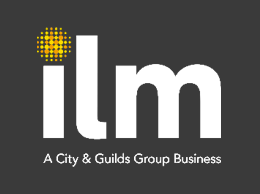In today’s fast-moving, interconnected world, organisations can no longer afford to treat Equality, Diversity and Inclusion as a side initiative. To build resilient, innovative, and high-performing workplaces, EDI must be embedded directly into management training programmes. When leaders are equipped to understand and champion inclusion, the impact ripples across culture, performance, and long-term success.
Managers shape the everyday experiences of employees. They influence who gets heard in meetings, who is offered development opportunities, and how conflict is resolved. Without structured training, even well-intentioned managers can unknowingly reinforce bias or exclusion. Embedding EDI into leadership development ensures that fairness and belonging are not accidental outcomes, they are deliberate leadership competencies.
Research consistently shows that diverse teams outperform homogeneous ones when they are effectively led. Many organisations have reported strong correlations between diverse leadership teams and improved financial performance. However, diversity alone is not enough. Inclusion, the active practice of valuing and integrating different perspectives is what unlocks potential.
Moving Beyond Compliance
Many organisations first encounter EDI through regulatory frameworks such as the Equality Act 2010. While compliance is essential, management training should go further than legal awareness. It should develop the practical skills required to create psychologically safe environments, address unconscious bias, and respond constructively to discrimination or exclusion.
Effective EDI training moves the conversation from “avoiding risk” to “creating opportunity.” It empowers managers to:
- Recognise and mitigate bias in recruitment and promotion
- Lead culturally intelligent and globally diverse teams
- Facilitate inclusive meetings and decision-making processes
- Respond confidently to sensitive conversations
By building these capabilities into core management programmes (rather than optional workshops), organisations signal that inclusion is central to leadership excellence.
Strengthening Organisational Culture
Culture is shaped by daily behaviours, not mission statements. When managers are trained to value difference and model inclusive behaviours, they foster trust and engagement. Employees who feel respected and included are more likely to contribute ideas, collaborate effectively, and remain loyal to the organisation.
In global organisations inclusive leadership has been positioned as a strategic priority to support innovation across markets. When management training aligns with these goals, inclusion becomes a driver of growth rather than a human resources initiative. Furthermore, younger generations entering the workforce increasingly expect their employers to demonstrate social responsibility and fairness. Integrating EDI into leadership development strengthens employer branding and talent attraction, particularly in competitive industries.
Building Practical and Sustainable Change
For EDI to be meaningful within management training, it must be continuous and embedded, not delivered as a one-off session. Practical approaches include:
- Scenario-based learning rooted in real workplace challenges
- Reflection exercises to explore personal leadership biases
- Coaching and mentoring focused on inclusive behaviours
- Clear accountability measures linked to performance reviews
Crucially, senior leadership must visibly champion these initiatives. When executives model inclusive behaviours, they legitimise EDI as a strategic priority rather than a temporary trend.
The Business and Human Case
Ultimately, embedding equality, diversity and inclusion into management training is both a moral and commercial imperative. It creates fairer workplaces where individuals can thrive, while also strengthening organisational adaptability and innovation. Inclusive managers build teams where difference is not merely tolerated but actively valued.
As workplaces become more diverse and global, the question is no longer whether EDI should be part of management training, but how deeply and authentically it is embedded. Organisations that invest in inclusive leadership today will be better equipped to navigate complexity, attract top talent, and build cultures where everyone can succeed.
Speak with one of our programme managers to discuss your needs – info@futureproof-training.co.uk.






